

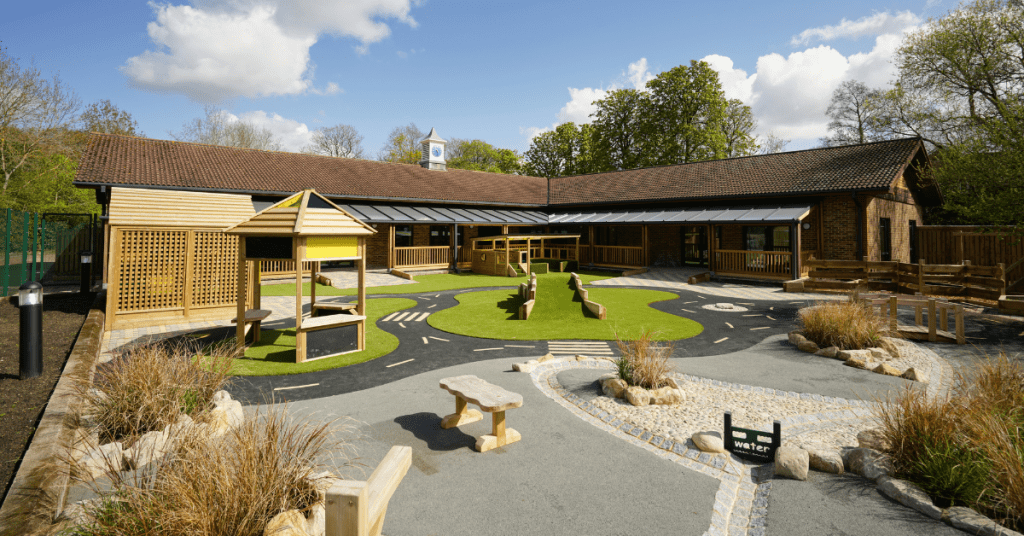

At Fennies, we firmly believe outdoor learning takes centre stage in igniting a thirst for learning amongst intuitive and curious young minds. As methods of learning and education platforms are ever-evolving, the Early Years recognises the part our natural environment can play. At Fennies Beckenham, Mosaic Way, our stunning garden provides children with multiple opportunities to explore, discover and unlock their imaginations and allows them to immerse themselves in nature’s offerings.
In this blog, I’ll delve into some inspiring and effective outdoor learning activities that go beyond traditional methods.
The benefits of outdoor play are endless. Engaging, inviting and inclusive activities allow children to learn in a range of ways and to develop their skills in all areas of learning. At Fennies Beckenham, Mosaic Way, we aspire for our outdoor space to be a place of development, building new connections and supporting children’s well-being.
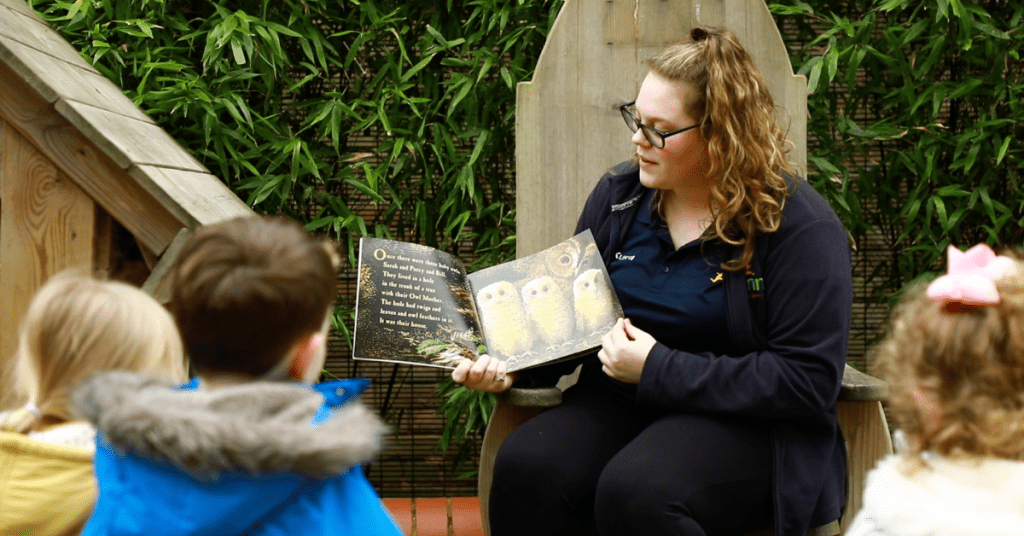

In facing challenges in the outdoor environment, such as navigating a range of terrains or climbing, children begin to develop their own resilience. By having a go, trying again and succeeding at a given task, children build their confidence, which is a transferable skill to serve them well in various encounters. Time spent in natural outdoor environments can reduce children’s stress levels and in turn, promote their emotional well-being.
The outdoor environment allows children to explore their gross motor skills, such as running, jumping and climbing. They develop spatial awareness, strengthen muscles and build on their core strength. Collecting objects such as rocks, sticks and stones allows children to develop their fine motor skills and can improve their hand-eye coordination.
Exposure to new experiences and objects in the natural world allows children to be introduced to new vocabulary, build on their existing knowledge, and begin to make key connections. Outdoor play allows children to dive into a range of sensory experiences, evoking questions of ‘why’ and ‘how’. Parent-child communication can support children’s language development in the form of open-ended questions, descriptive vocabulary and context-specific language.
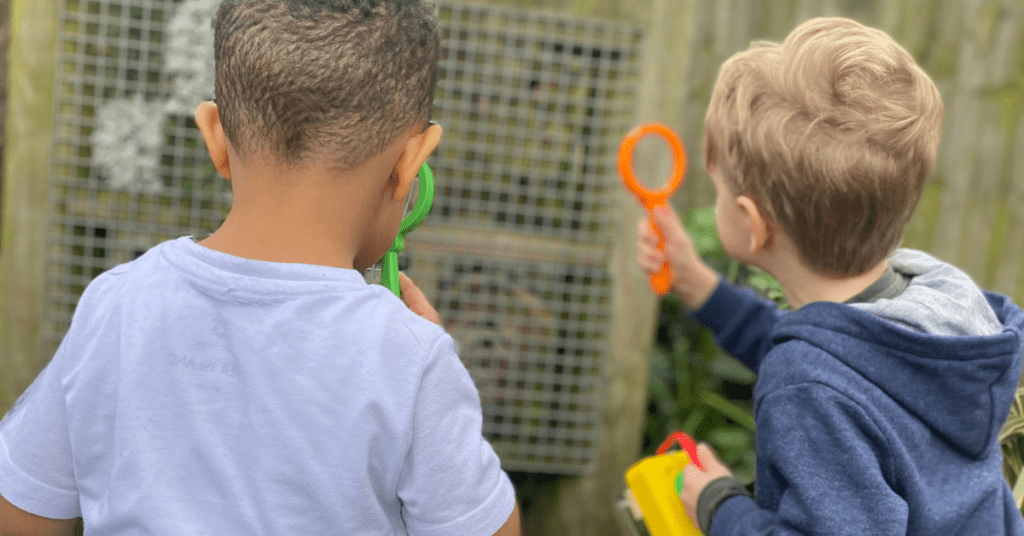

Learning outdoors in the Early Years has many forms, but the opportunities that contribute towards making a significant impact are those that go beyond traditional methods. Here are some innovative ideas, that the children at Fennies love! These activities will undoubtedly support children in navigating their growing curiosity:
Take a moment to find a cosy outdoor space such as under a tree or create a den and use the area to share stories. Use puppets and costumes to bring your stories to life. The great outdoors is thriving with natural resources that can be collected by the children and used as props, encouraging them to use their ever-evolving imaginations. Storytelling helps to build confidence and can enhance language development so why not bring storytime outside?
The outdoors is a hub of open-ended resources. Children can collect stones, twigs, leaves and flowers to create collages on the ground, experiment with building structures such as mini teepees and build bug hotels for minibeasts. Extend this by adding fresh findings to the garden.
Give children the time to create their art over a period of a few days or weeks and watch as they are mesmerised by the changes that happen over time, such as leaves changing colour and flowers wilting away. Children will soon begin to question ‘how’ and ‘why’ things change, increasing their environmental awareness.
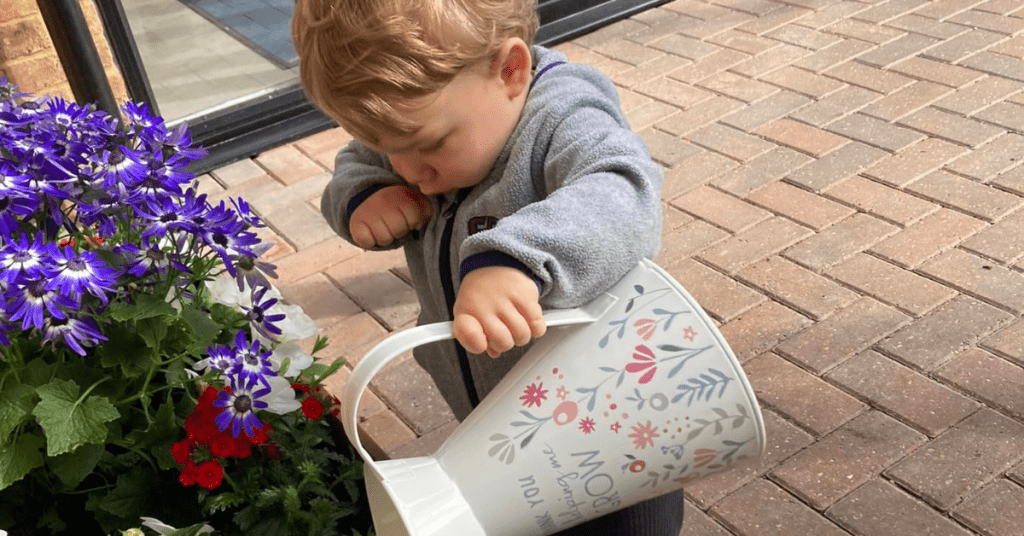

Give children the opportunity to hunt for natural materials found in the garden or on a nature walk. Allow them an allocated space, such as a tuff tray or mud kitchen to combine the materials to make potions and perfumes, or to make believe through role play and imagination. Children can collect items using small containers and baskets, giving them a sense of responsibility and focus. Provide magnifying glasses, spades and scales, allowing them to study their findings and to promote teamwork.
Take your children on a fascinating journey of growing their own fruits and vegetables. Begin by having conversations about where fruits and vegetables come from and what they might need to make them grow. Use spades and other such gardening tools to prepare your space, plant the seeds together and observe their growth over a period of time. Allow the children to get their hands dirty and help to build resilience by teaching them that dirt can be washed away. Gardening activities promote teamwork, patience, active learning and a sense of achievement. Extend this by growing wildflowers, encouraging butterflies and bumblebees into your garden and promoting children’s awareness and language as you go.
Create spaces that invite wildlife to your outdoor space, such as bird feeders, bird baths, wildflowers, bug hotels and hedgehog boxes, all of which can be made by your children. As they begin to attract the local wildlife, children can observe nature’s beauty. Add binoculars to help them see into the distance. Provide children with checklists so they can mark off what they can see, picture cards to help them identify birds and insects and Polaroid cameras to capture the moment. Consider placing a night cam to capture activity overnight and ignite children’s awe of the world around them. You may even see a fox or badger, animals that children may not see during the day. Viewing stations allow children to discover new things, develop their ability to tolerate delay as they patiently wait and form an appreciation for the world around them.
Outdoor play is an integral part of a child’s holistic development. Outdoor play has the potential to unlock a lifetime of children’s curiosity, learning and exploration. Use your gardens, local parks, fields and nature walks as an extension of the classroom – the opportunities are endless. Create impactful memories and experiences, those that your children will recall in years!
“I know of no pleasure deeper than that which comes from contemplating the natural world and trying to understand it.” – Sir David Attenborough


Nursery Manager




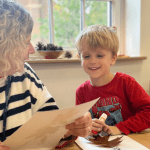

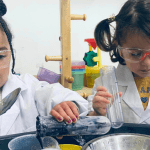

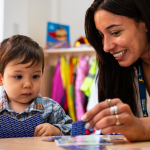

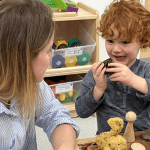

View All
This website uses cookies so that we can provide you with the best user experience possible. Cookie information is stored in your browser and performs functions such as recognising you when you return to our website and helping our team to understand which sections of the website you find most interesting and useful.
You can read out full privacy policy here
Strictly Necessary Cookie should be enabled at all times so that we can save your preferences for cookie settings.
If you disable this cookie, we will not be able to save your preferences. This means that every time you visit this website you will need to enable or disable cookies again.